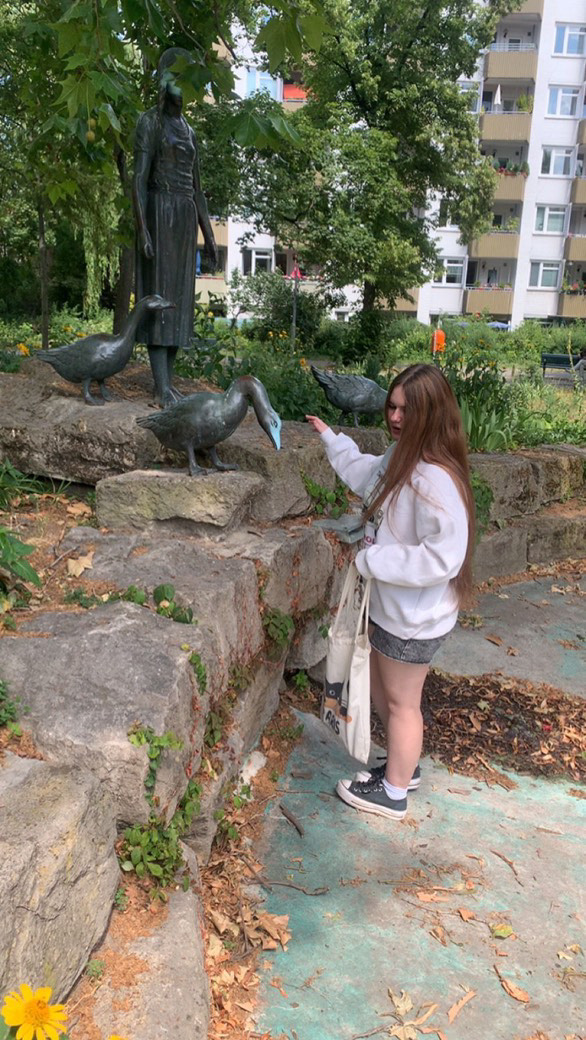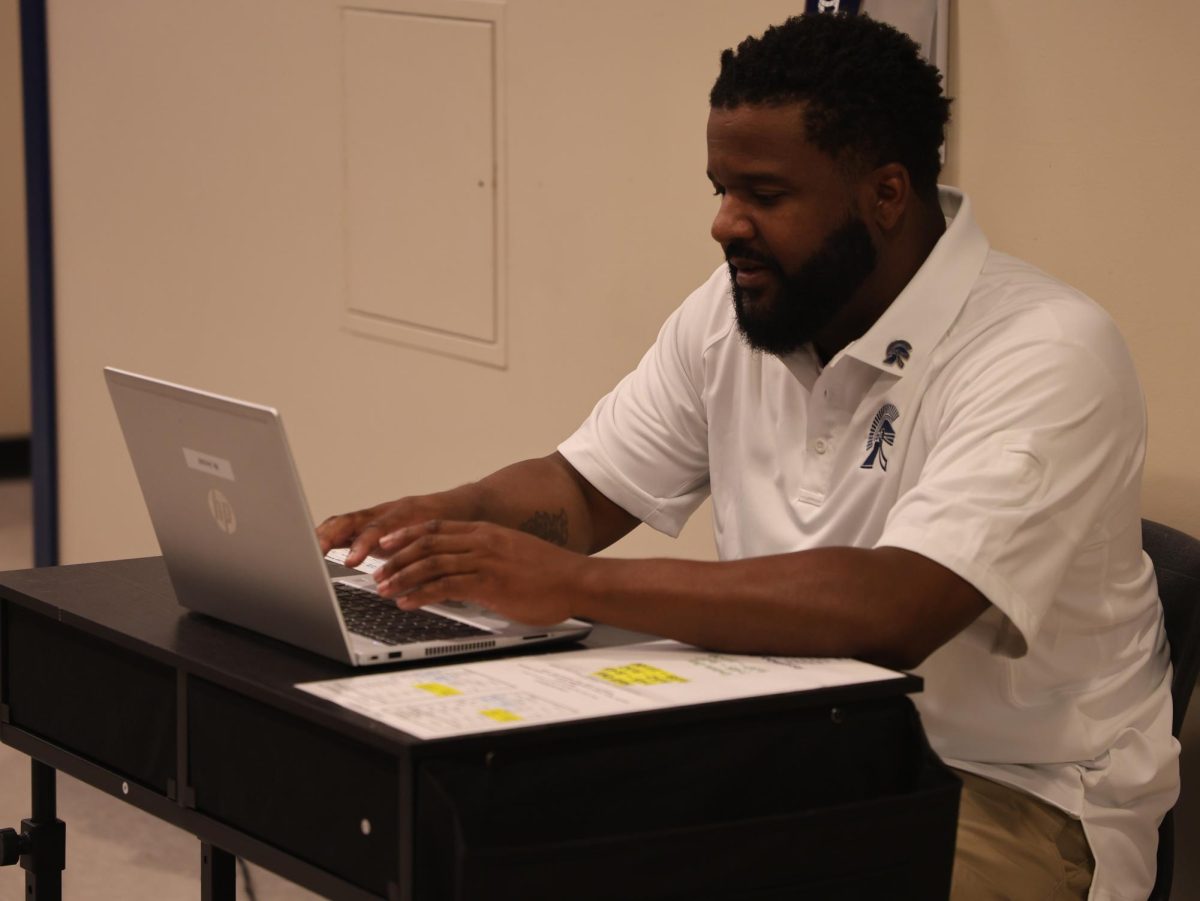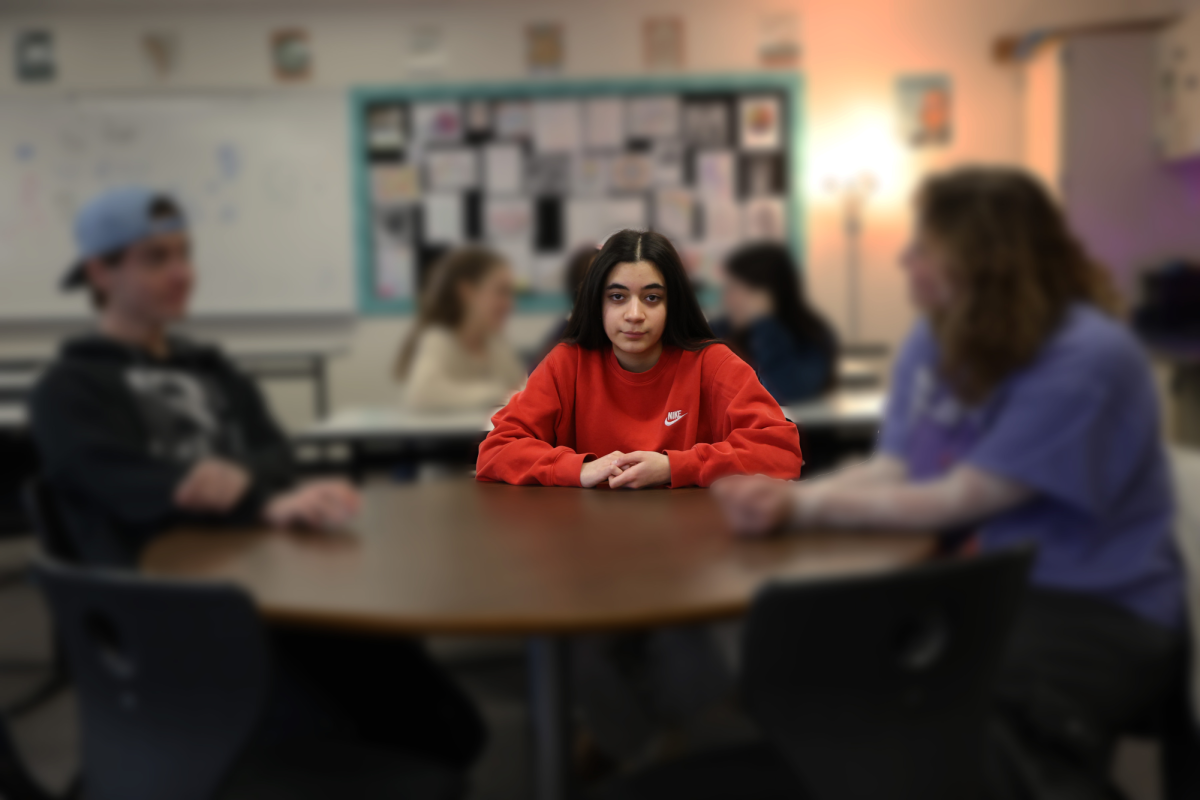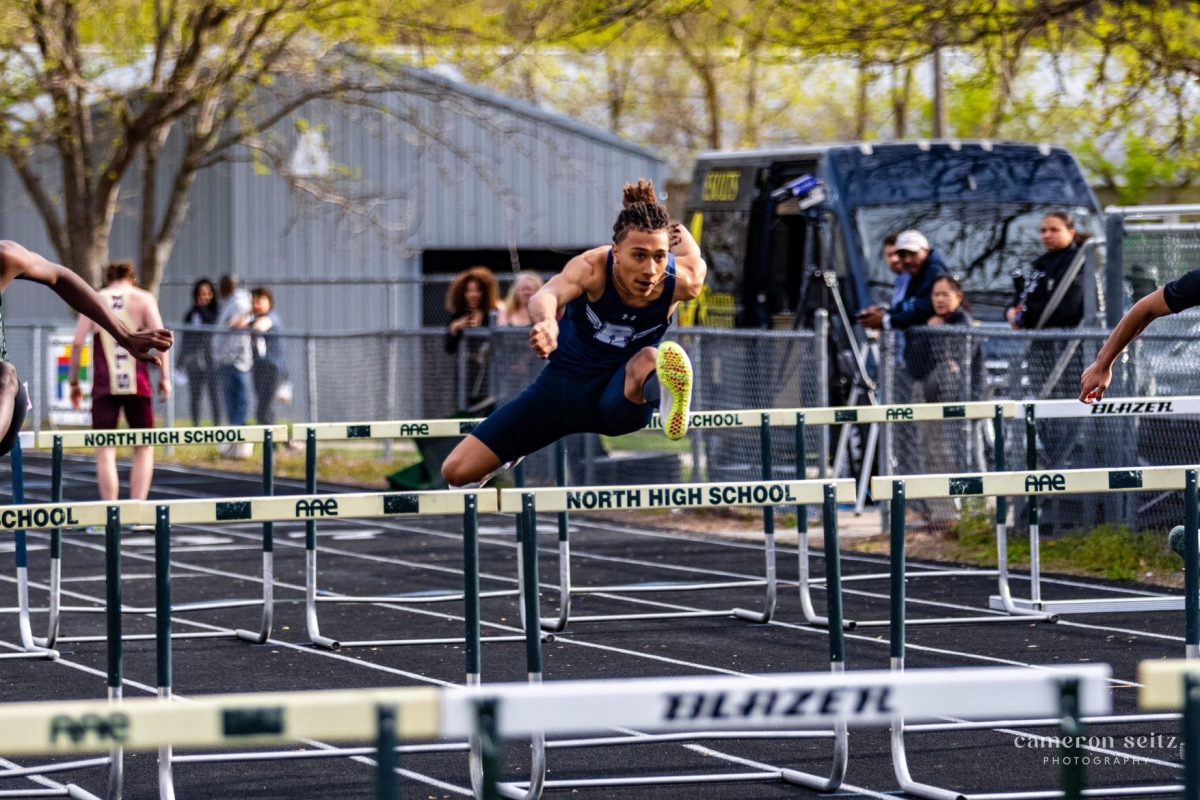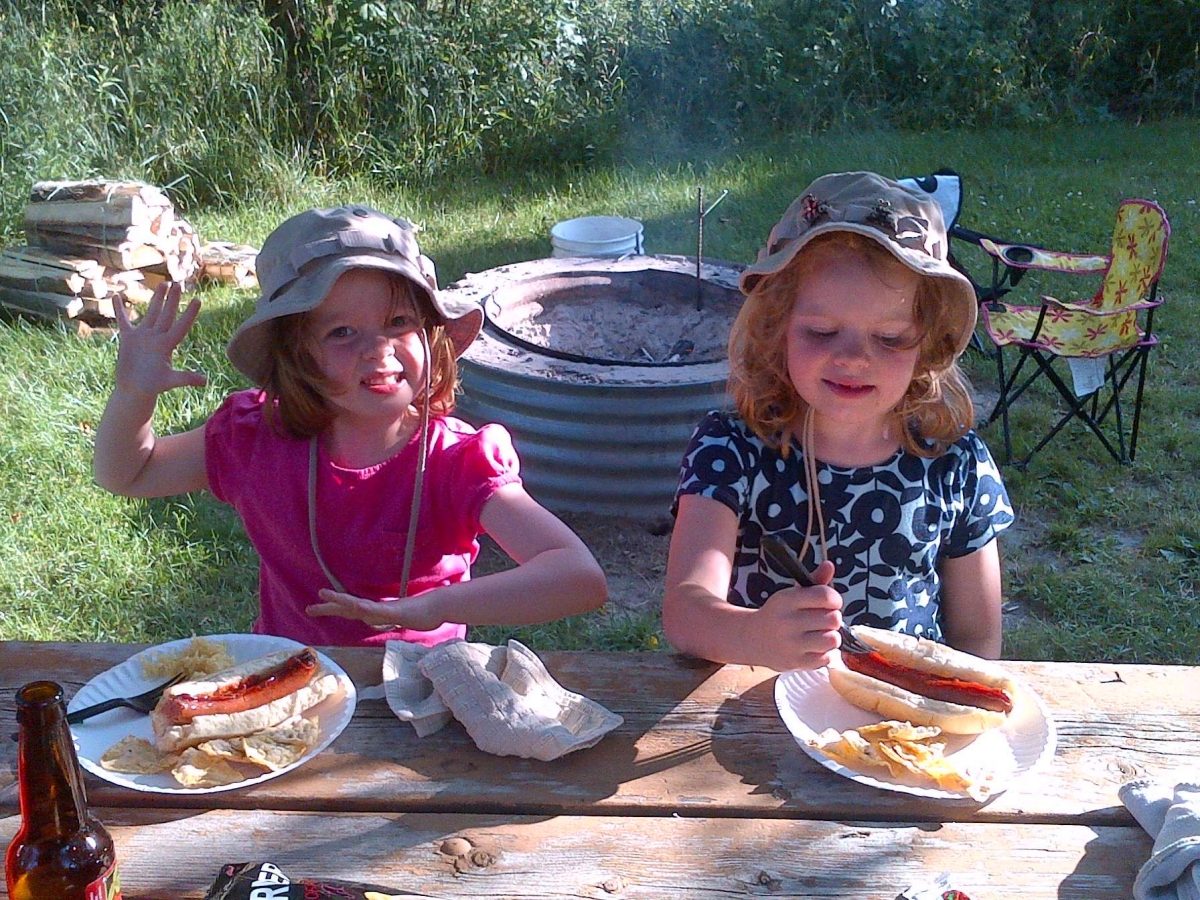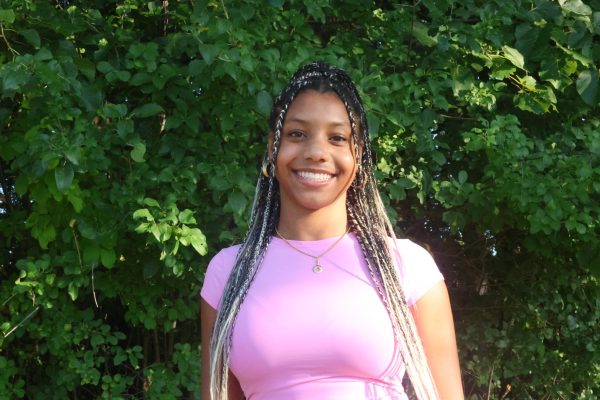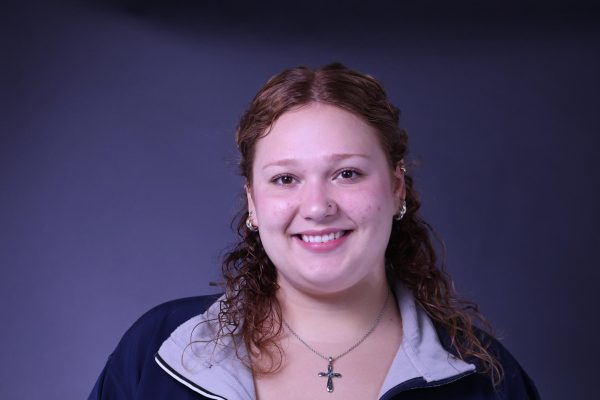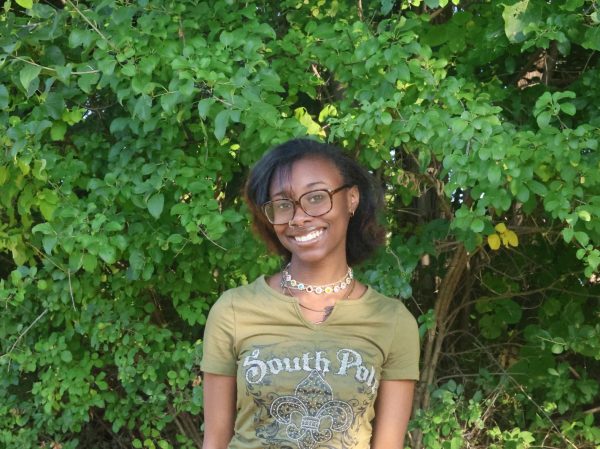Black History Month means more than just history to Nala Noel (12). Black History Month gives Noel a look into how Black history can shape the future. Specifically, she takes issue with how the acknowledgment of Black history tends to be through a white lens rather than talking about Black culture and heritage, and the message that sends.
“I think Black accomplishments, and what they teach us in history class, vary from teacher to teacher,” Noel said. “I think Black History Month allows us to go more into depth and highlight the Black greatness in our past.”
Although Noel believes that some teachers at ELHS put in the effort, she would like to see ELHS move further towards upliftment. Noel believes there should be a consistent standard during Black History Month.
“I like how they acknowledge it on the announcements,” Noel said. “But to be honest, I think every teacher should be required to at least acknowledge Black History Month in some way. I at least wish more teachers were encouraged to do stuff like that.”
Although students are taught a portion of American Black history in school, Noel wants to see more of the richness that is Black history across curriculums.
“I want to see a focus on topics that usually get neglected,” Noel said. “And I think that means to learn more than we do during the rest of the year. It means to appreciate Blackness and what Black people have done for this country and everyone in it.”
For Noel, the BSU Public Relations officer, the Black community extends beyond the hub every Thursday. Celebrating Black history is just as much about connecting with Black communities outside of ELHS as it is celebrating Black history at BSU meetings and learning about it in classes.
“Being a part of BSU, we try to keep in touch with BSU’S from other schools as well,” Noel said. So we can really celebrate as a community. We celebrate with families, friends, and other clubs. All of these groups make the effort to take note of Black history.”
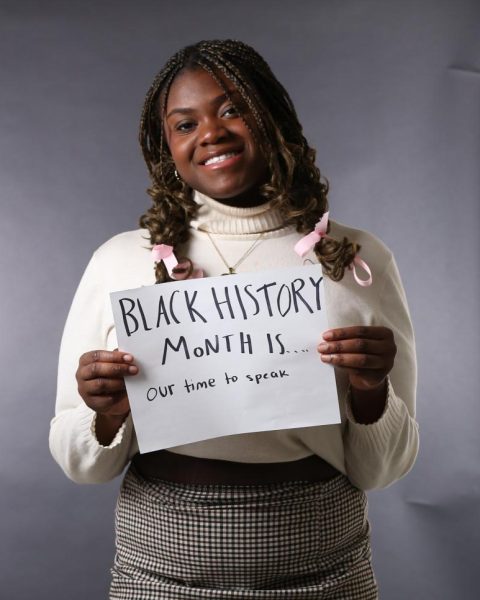
For Gabrielle Sewavi (12), her community is the ELHS BSU and her Togolese relatives. Sewavi’s parents are first-generation immigrants from the African country of Togo, who came to the United States in the late 1990s. She and her family are from a Togolese village named Ewe. Although Sewavi feels connected to her culture because of her family ties, she feels a bit disconnected from the African-American community as a whole.
“There isn’t a huge Togolese population here, but my dad works with the study abroad program, so we connect with a lot of African heritage through that,“ Sewavi said.
Sewavi and her father occasionally host people from Africa, specifically Togo. That is one of the ways she feels connected to her Togolese community.
Another community Sewavi feels heavily connected to is BSU. Sewavi is one of the two presidents of this club and feels that her relationships with her family and her Black friends from school are valuable to her. She and other Black students who play a leading role in BSU have multiple events in honor of Black History Month planned, along with regular informational Thursday meetings.
“I think BSU is here to show that the black students have unity,” Sewavi said. “It’s important that everybody knows their voices are heard and we recognize their struggles.”
BSU, In honor of Black History Month, is hosting a Black excellence photo event, a Black hair care product drive, and hosting a potluck for fellow BSUs from surrounding schools.
Black History Month is important to Sewavi. It’s a time to show up for fellow Black students, but for her to personally take the time to do a deep dive into more African American history that is not taught in school. Plus, students are free to talk about the struggles of being a Black woman.
“It’s the one month of the year where we can talk about our problems without being spoken over,” Sewavi said. “And we can recognize how far we’ve come but also how far we need to keep going.”
Bem Woldu (10) has found community through
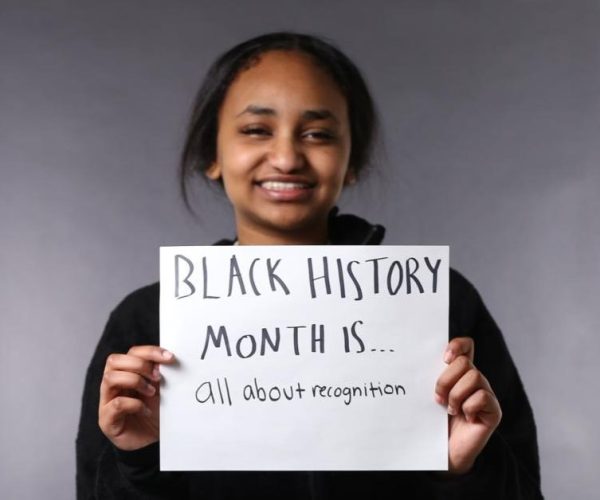
the Black staff members of ELHS. Seeing representation provides Woldu with a sense of safety and support.
“I think they’re great at hearing people out when there’s an issue or a big problem,” Woldu said. “I can count on being understood when I go to the Black staff members here.”
Woldu has been able to rely on the Black staff members of East Lansing Public Schools since she switched to the district in 2020. She finds ELHS staff to be understanding in ways that impact her experience in East Lansing as a whole.
“I feel like I can tell them whatever I’m going through, whether it’s school-related or not,” Woldu said. “I know I will be heard and I’m always sure they will understand why I came to them.”
Although Woldu has connections to Black communities within ELHS, she does find herself wanting a deeper connection to the personal heritage of herself and her family.
“I’m from Ethiopia, which is in East Africa,” Woldu said. “I do feel connected with my culture in some ways, but I feel like I wish I knew more Ethiopians, like Ethiopian people.”
Woldu would like to see Ethiopian culture and other African cultures recognized during Black History Month in addition to Black American history, which she finds to be the more common subject.
“Given the fact that it’s all about recognition, I want the opportunity to learn more about our Ethiopian culture,” Woldu said. “And other than learning from my mom, It’s been hard to find ways to learn about it.”
Woldu has discovered that as a whole ELHS could do better in terms of celebration during Black History Month. She believes that small steps will make a big difference for herself and other Black students.
“I think little things could be done,” Woldu said. “I remember at my elementary school, every day during Black History Month, they announced one important Black person that has made a difference. I think it truly could be an easy fix, with a great impact.”



